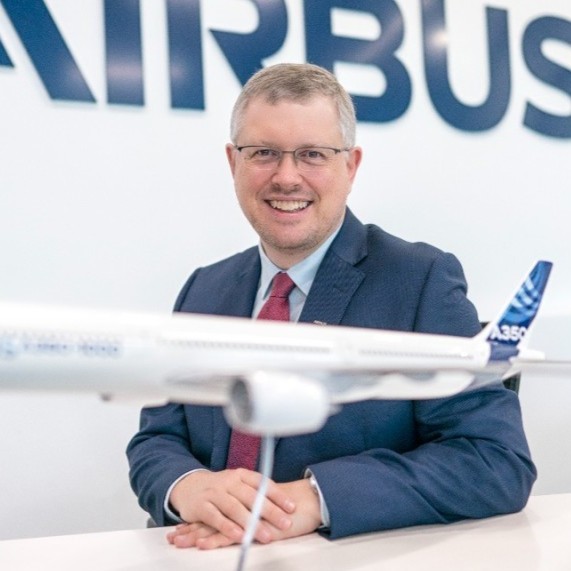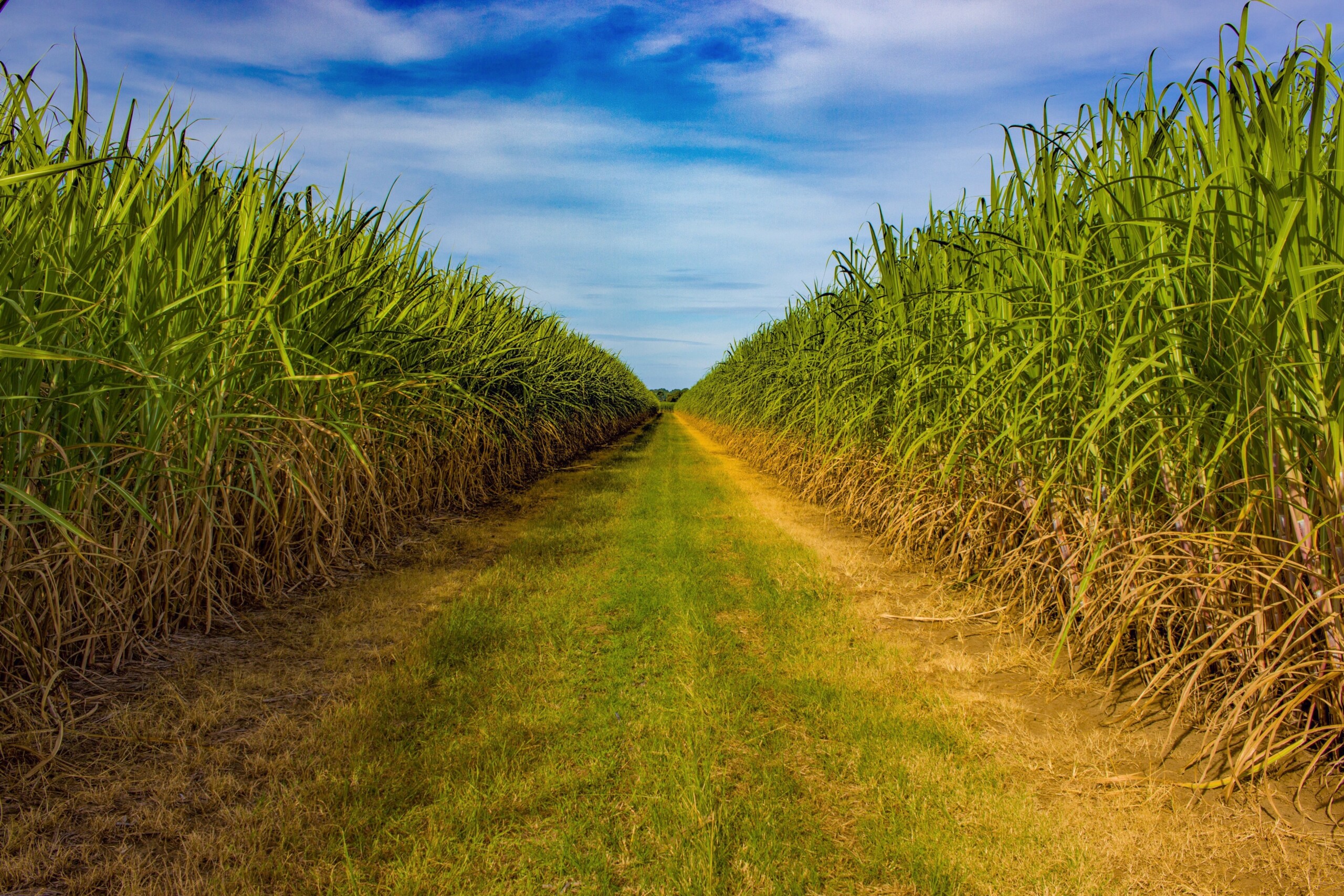Sustainable aviation fuels – are we ready for takeoff?
Tell someone they’re flying on a plane powered by sugar cane waste or used cooking oil, and you are sure to raise a few eyebrows! Here Airbus’ ANZ Chief Representative Stephen Forshaw shares, how science and agriculture can play a major part in solving one of the world’s toughest decarbonisation challenges – reducing carbon emissions from aviation.

Made from agricultural and forestry waste and residues, as well as fats, cooking oil and greases and other biomass, Sustainable Aviation Fuel, or SAF, produces about one-fifth of the emissions of conventional jet fuel. It is considered to be one of the aerospace industry’s best decarbonisation solutions, and although collaboration between government and aviation companies to foster a productive and sustainable SAF industry is starting, it is still early days.
Stephen Forshaw, Chief Representative of Airbus in Australia and New Zealand and speaker at AgriFutures evokeAG. 2024, believes that with a need to decarbonise aviation, there is an urgency that creates an opportunity to use biomass-based fuels to reduce the amount of traditional aviation fuel being used.
RELATED: Exceptional agrifood innovators and ideas powering change: The 2024 evokeAG. Program
“Today, most aircraft can replace up to 50% of their fuel with SAF without any mechanical modifications. Every litre of SAF replacing kerosene can reduce greenhouse gas (GHG) emissions by as much as 90%. The opportunity is big,” Stephen said.
“However, we also need to bring customers with us, understanding they will want to be satisfied that these new fuels are safe. That’s why we are all committed to an extensive certification process with global regulators.
“Globally, only about 0.01% of the SAF needed to replace traditional jet fuel is produced today, and in Australia, we produce none.
“In the Australian context, by 2030 we will be using 10 billion litres of jet fuel a year, placing us among the top 10 nations in the world by consumption. Yet, we’re producing none of the SAF needed to make our industry more sustainable.”

Stephen Forshaw, Chief Representative of Airbus in Australia and New Zealand will share his insights on biofuels and sustainable aviation fuel and the opportunities for Australian producers at AgriFutures evokeAG. 2024, 20-21 February.
Barriers to advancement
Stephen sees three clear barriers to advancement of the industry in Australia.
Firstly, and somewhat perversely for a primary production powerhouse like Australia, a major challenge is the use of biomass to produce SAF.
“Through things like agricultural and forestry waste, there is no shortage of biomass being produced in Australia. But the lack of local refinery facilities means what we have is exported to the United States, Europe and Singapore to produce SAF,” Stephen said.
“This could leave us in a position where, by the time we’re ready to produce large scale quantities of SAF, we’ve exported much of the feedstock we would need. Or perhaps the highest-value feedstock would be gone, leaving us lower quality feedstock.”
Secondly, and in what would be a big shift for a currently entirely unregulated industry, Stephen sees the potential for regulation of the Australian SAF and biofuel sector similar to other fuels, like Liquified Natural Gas (LNG) or petroleum.
“In the past, most of this feedstock was considered waste, but today it has significant value and the industry needs the certainty and structure that can come from smart regulation if it is to seize opportunities locally.
“It’s not cheap to build refineries. You need capital, and certainly this is something Airbus and Qantas have committed to invest in, through seed funding of businesses which will be developing SAF in Australia over the coming years.
“But we can’t do it alone and governments needs to step up on both policy and appropriate market incentives and stimulus to encourage a domestic industry.”
Thirdly, planning and approval processes in Australia are protracted for these types of projects.
Regulatory uncertainty, and a lack of financial incentives, means the opportunity for the airline end users in Australia limited compared to somewhere like the United States where Government supports the industry with strong incentives and progressive policy.
“If you buy SAF in Australia today, the price will be three to four times higher than normal jet fuel. In the US, it’s only marginally higher, and coming down. This increases demand, which in turn drives better carbon efficiency and lower emissions,” Stephen said.
“If the offtake price is not competitive, then airlines seeking to fast-track their decarbonisation will pay a higher price for their number one cost – fuel. This acts as a disincentive to the uptake of low-carbon fuels.”
What next for SAF?
Despite these challenges, Stephen is optimistic about the role SAF will play in decarbonisation generally, and for the aviation industry in particular.
“The aviation industry has limited options when it comes to decarbonisation. We can’t rely as extensively on batteries or electricity as land transport, so SAF is a big part of the decarbonisation pathway for us,” Stephen said.
And then there is the technology in the aircraft themselves.
“As we develop our next generation of aircraft, the planes are about 20-25% more fuel efficient than the past generation, thanks to better design, lower weight in the airframe, manufacturing and engineering advances, and improved engine technology,” Stephen said.
“There’s no ‘silver bullet’ that will get aviation to zero. It will be a patchwork approach, but SAF and technological advancements are certainly two very big patches.”
It’s a win-win for Australian producers
While it may be some time before SAF takes off in Australia, there are a range of high-grade fuels and biomass products, like ethanol, that present opportunities for Australian agriculture and existing industries such as sugarcane.
“Ethanol can bring emissions down by up to 80%, and tallow and forestry byproducts are showing promising early results, but work is still nascent on these,” Stephen said.
Definitions of what constitutes sustainable biomass products vary internationally. Airbus, which is headquartered in Europe, adheres to strict European standards.

RELATED: Farmers tapping into power of plants to help fuel renewable future
“Any biomass that is taken from the human-consumption grade food might be low carbon, but it wouldn’t be classified as sustainable, because we solve one problem for humanity but create another – inability to meet the world’s demand for nutrition,” Stephen said.
Food waste, agricultural and forestry byproducts are all fair game however, and Stephen sees opportunity here for the Australian agrifood sector.
“The opportunity now for agrifood production in Australia is to work with science and research agencies to test the efficacy of all the different types of agricultural waste and byproducts, and then look for pathways to scalability in the production of fuels,” he said.
“People all along the supply chain are increasingly asking themselves – am I producing something directly or indirectly that could form part of the energy mix as we transition to a net zero economy?
“Indeed, the energy transition represents one of the single largest transformation opportunities we’ll see in our lifetimes! We will see many new jobs created, providing opportunities for those affected by the winding down of fossil fuels. But we have to be willing to make the transition, invest in it, build it and deliver on the ambition.”
Want to hear more of Stephen Forshaw’s insights on biofuels and sustainable aviation fuel and the opportunities for Australian producers? Join us at evokeAG. 2024 in Perth on 20-21 February.
Stephen will be joined by Brad Jones, Director of Bungulla Farming, Brianna Peake, Chief Stakeholder Relations Sustainability and Strategic Officer, CBH, Stephen Vogel, General Manager, Rabo Research Australia and New Zealand on a panel discussion “Ready for takeoff? The state of play for the biofuels industry” on day one at evokeAG. 2024.
Tickets are on sale here. View the full two-day program, including all speakers and our exceptional partners making evokeAG. 2024 possible.
